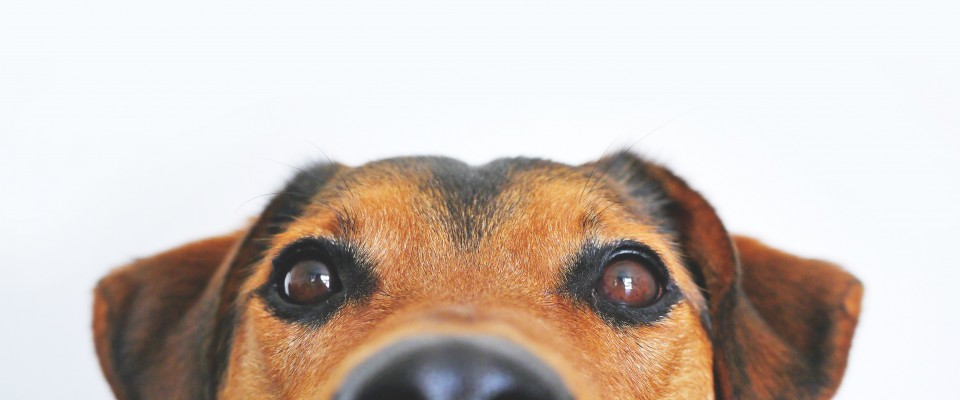It’s winter, and time for my life to take a brief hiatus, and a deep breath, except that calming release is now ending instead in a catarrhal cough, not the cleansing exhale for which I’d hoped. Like many of you, due to the evidence of vast tracks of empty supermarket shelves where the tissues once were, I’m ODing daily on Mucinex, having succumbed to an insidious seasonal virus. In spite of this, I cooked supper, dumping copious amounts of herbs and spices into the concoction. Unconsciously nibbling on bits of food, I suddenly realized the tears streaming down my cheeks weren’t from the onion I couldn’t smell sautéing happily in the pan, but from my inability to taste, making me wonder why I wasn’t just cooking up a hunk of cardboard for dinner. Ah, wherefore art thou, o sense of smell?
We are born with a sense of smell fully developed, instrumental to our survival as a species, designed to warn and protect us. The olfactory system connects directly to the brain, affecting both memory and emotion. Vanilla, the most popular scent, recalls mother’s milk. The chemicals which create odor can send us running from the stench of a stinky locker room or into the chubby arms of a cooing infant who smells like maple syrup. Some of these odors can attract us to our future mates. It seems we are often inexplicably drawn to those whose compounds differ the most from our own. That sound you hear in the background is Evolution and Mother Nature hanging out at a bar, laughing hysterically, ensuring that the species will continue to exhibit diversity and survive. Women have it over the guys. Their orbital, prefrontal brains are more developed. This theoretically helps them find the best bachelor, bond with their babies and also realize when the toilet has not been flushed, and there are disgusting unwashed hockey uniforms under a bed three rooms away.
In the beginning, humans had a much greater sense of smell, but it diminished once we started to domesticate dogs, whose ability is four times greater. Who better to sound the alarm regarding an approaching fire or intruder. Our ability to smell keeps (some of) us from guzzling curdled milk and hanging around decaying bodies. Before a storm, as the winds begin to blow, have you ever sensed a ping of sweet and pungent air? That is the odor of ozone down-drafted to ground as a thunderstorm nears. Many smells are connected with eating: There is no taste if we don’t have smell. Some of our most positive smells are orange, cinnamon, crayons and cookies; we experienced those things as small children when we felt safe and nurtured. Some folks aren’t as lucky. They suffer from anosmia, the inability to identify smells, but even worse is cacosmia; the only smells they identify are vile and loathsome like vomit and waste. Many psychopathic people have smell impairment due to inefficient front brain processing. This explains why some people developing dementia and Parkinson’s are unable to identify certain odors. Smelling ability peaks at 17 and goes downhill after—like everything else, apparently. Yes, there is an
“old peoples’ smell” created by 2-noneval, a chemical compound caused by chemical breakdown resulting in an unpleasant, greasy, gassy odor. The same compound is responsible for stale beer flavor. Seems we’ve all had better days…
Elephants can detect water 12 miles away, and cats and dogs have alerted people to oncoming seizures, cancer and impending death. It’s no surprise scientists are constantly trying to harness smell for our use. The U.S. and Israel created a crowd-control spray from human excrement, tiny amounts are used in perfumes, but in larger amounts it is noxious and persists for days. In 1665 London, during the bubonic plague, they bottled up farts and sniffed them as a “cure.” Bees have an amazing sense of smell, similar to dogs. A bee-based odor detector, the Vasor 136, was developed using 36 cartridges, each holding a bee trained to detect a different smell. When a bee locks on, it sticks out its little tongue. Starbucks, Cinnabon and movie theaters all use odor marketing. The Japanese created a room spray that mimics the “smell of a cat’s forehead” to recall cuddling with a kitty. That new car smell comes in a can and lasts six weeks.
Our sense of smell allows us to enjoy food, find a Valentine, relive happy memories and avoid danger. Yes, there is the occasional getting blown out of the room by a gassy dog or getting stuck at the beach next to a pile of rotting seaweed, but all in all, it’s a pretty good deal. I’m praying for a summer day, clear sinuses and the olfactory appreciation of a clam bake by the beach. Oh, one warning: If you can’t identify rosemary, orange or peppermint, you have a three times greater chance of dying in five years—just thought you should know. Odors aweigh my friends!













